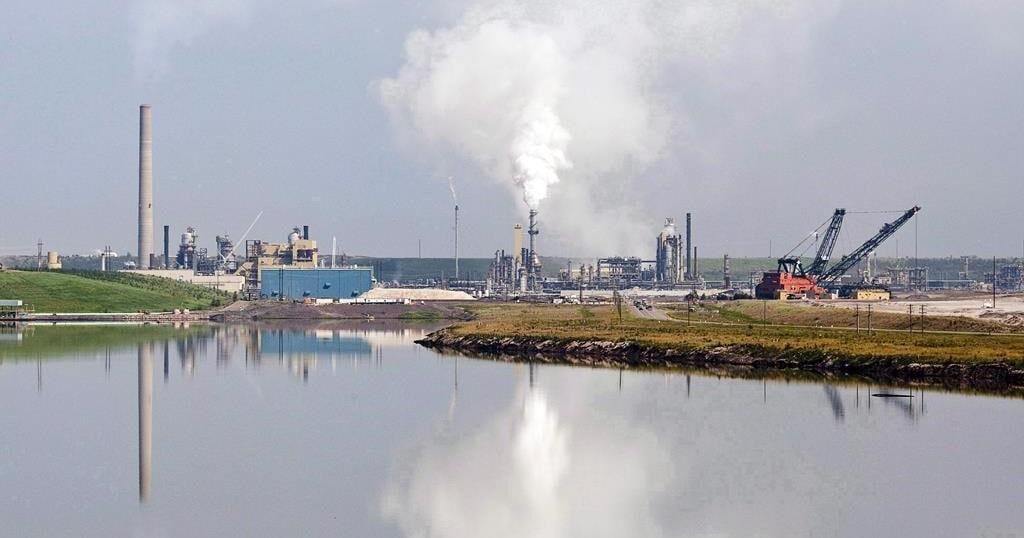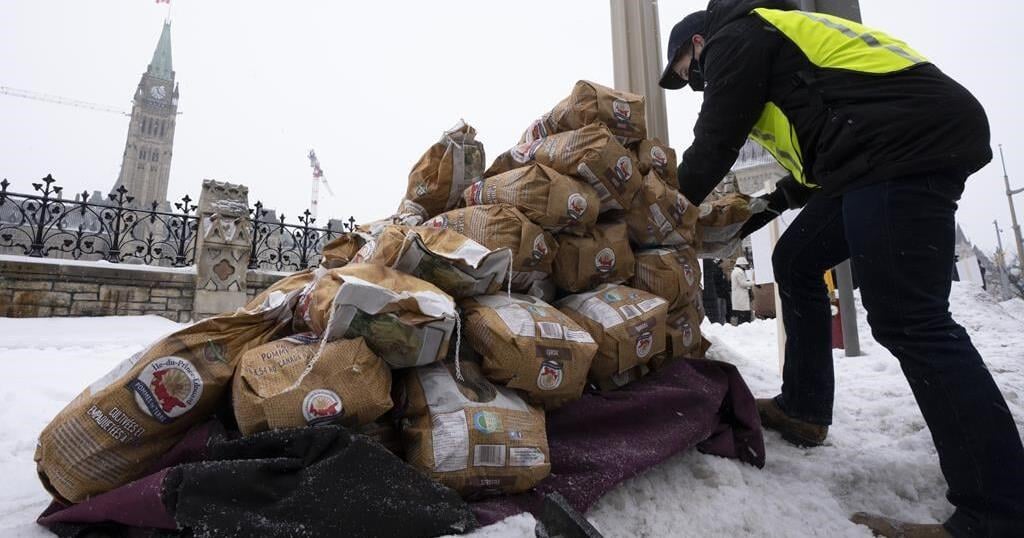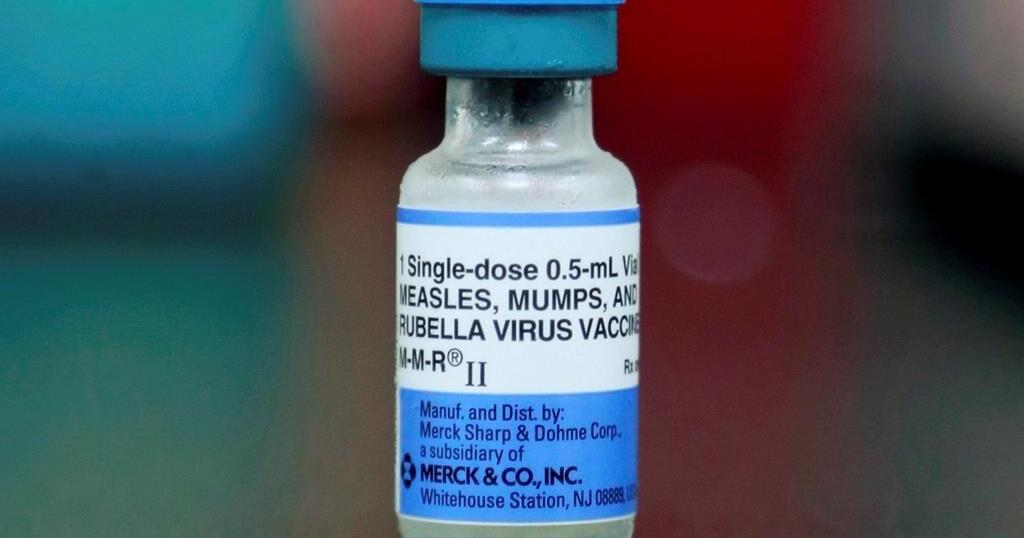CALGARY – Canada’s oilsands industry remains under pressure to reduce its greenhouse gas footprint, even as companies have clamped down on public communications in the wake of new anti-greenwashing legislation.
The Pathways Alliance — a consortium of six companies that have jointly committed to achieving net-zero greenhouse gas emissions from oilsands production — has been largely silent since June, when the federal government passed an amendment to Canada’s Competition Act containing a new anti-greenwashing provision.
But clean energy think tank the Pembina Institute said concerns about the new law shouldn’t prevent Pathways from pulling the trigger on its proposed $16.5-billion carbon capture and storage project.
“(The greenwashing legislation) doesn’t preclude things like announcing final investment decisions on carbon capture projects or emissions reduction projects,” said Matt Dreis, the think tank’s senior oil and gas analyst.
“If we want to be leaders in that sector, we’re going to need to get projects like this across the finish line.”
It’s been three years since the Pathways Alliance first proposed building a massive carbon capture and storage network in northern Alberta to help reduce emissions from oilsands sites. While it has submitted a number of regulatory applications, the consortium has not yet given the project an official green light in the form of a final investment decision.
The industry group also removed virtually all of its content from its website after the passage of new greenwashing rules, which require corporations to provide evidence to support their environmental claims.
The bill’s wording says businesses must not make claims to the public about what they are doing to protect the environment or mitigate the effects of climate change unless those claims are based on “adequate and proper substantiation in accordance with internationally recognized methodology.”
In an emailed statement this week, Pathways Alliance president Kendall Dilling said the group continues to pursue its major project and is working with federal and provincial governments “to determine the most appropriate way to enable large investments into major projects such as ours.”
“The new law does not change the intent of Pathways Alliance nor the work we are doing,” Dilling said.
“However, the changes to the Competition Act do make it more difficult to publicly discuss our work, due to the vagueness of the law.”
A newly released survey by ATB Capital Markets found 53 per cent of oil and gas producers polled said the new anti-greenwashing rules in the Competition Act will be “very impactful” to their company’s environmental reporting practices.
The survey — conducted between Aug. 28 and Sept. 9 — also found a sizable reduction in the willingness of energy companies to invest in environmental technologies based on an ESG mandate over the next year. Just 17 per cent of respondents noted intentions to invest, down from 34 per cent in the spring 2024 survey.
Dreis said the lack of a final investment decision thus far from the Pathways Alliance is concerning given the oilsands industry is Canada’s heaviest-emitting sector and carbon capture and storage projects are already going forward elsewhere.
In June, Shell approved two projects that will capture and store carbon emissions from its Scotford refinery near Edmonton. In July, Strathcona Resources announced a partnership with the Canada Growth Fund that will see the federal entity contribute up to $2 billion in funding for the company’s carbon capture projects in Cold Lake and Lloydminster.
The Shell and Strathcona announcements came in the wake of the federal government’s finalization of an investment tax credit for carbon capture and storage projects, something heavy emitters such as the Pathways group had lobbied heavily for. But Dreis said it’s clear now the tax credit on its own isn’t enough to compel broad-based action by industry.
“We were hoping to see some more announcements regarding carbon capture projects moving forward after that was announced,” Dreis said, adding that is why Pembina supports the federal government’s proposed legislated cap on emissions from the oil and gas sector.
“It seems like the key pieces aren’t in place yet, so hopefully we can find a solution and start getting meaningful emissions reduction from this sector.”
The Pathways Alliance has previously said its carbon capture and storage network could help its member companies achieve a 32 per cent reduction from 2019 emissions levels by 2030. Dilling said last March that he is hopeful a final investment decision will be made before the end of 2025, with construction beginning in 2026.
This report by The Canadian Press was first published Sept. 19, 2024.























